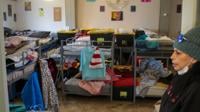(The Center Square) – Democrats in the Washington State Senate passed a $78.5 billion operating budget on Saturday that Republicans say relies on the largest tax increase in state history.
A much smaller no-new-taxes budget proposed by Senate Republicans was rejected on a party-line vote of 30-19 before the Democrat's budget was approved on a vote of 28-21. Sen. Mike Chapman, D-Port Angeles, and Sen. Deb Krishnadasan, D-Gig Harbor, joined all Republicans in voting against the package.
The Senate’s passage of the budget takes place amid the context of a projected budget shortfall estimated to be as high as $15 billion based on the latest revenue forecast.
Sen. Chris Gildon, R-Puyallup, urged Democrats to reject massive tax increases in the budget, which Republicans claim are not needed to fund critical programs and services.
“Things that generally drive the cost of government – things like education, medication, and incarceration – all of them are pretty stagnant, and some of them have actually gone down,” the Senate Republican budget leader assessed. “K-12 enrollment is below 2019 levels, we have about 150,000 fewer people on Medicaid than we did in 2024 and our population in prison is about 4,000 less than it was pre-pandemic, so the typical cost drivers for our state just isn’t really there.”
Republicans offered a striking amendment that would implement what Republicans proposed in their operating budget plan. It was rejected.
“The underlying bill relies on about $21 billion gross in new taxes,” Gildon said, acknowledging that if a proposed sales tax reduction in the proposed budget is included, that figure drops to $17 billion. “This proposed substitute has zero in new tax increases.”
The budget proposal calls for reducing the state sales tax from 6.5% to 6% starting next year.
Gildon also criticized the Democrats' budget for draining the state’s emergency reserve fund, noting the state treasurer has cautioned against it.
Sen. June Robinson, D-Everett, chair of the Senate Ways & Means Committee, said budget-writing this time around came down to some very hard choices.
“The core of this budget is a commitment to the people of Washington,” she said on the Senate floor. Deeper cuts would have been “devastating,” according to Robinson.
She referred to tax increases in the budget as “necessary and progressive revenue options.”
Over the four-year budget outlook, $6.5 billion will be cut in spending, and $16 billion will be added in revenue – a net of $6.2 billion in the 2025-27 biennium and $9.8 billion in 2027-29.
“Crafting this budget meant facing difficult realities head-on and doing so without losing sight of the people we serve,” Robinson said in news release. “Every decision in this budget was made with care – not just to close a gap, but to protect our values, support communities, and build toward a more stable, sustainable future for Washington.”
Individual taxes included in the proposal have yet to be voted on but will be in the next day or two.
That includes increasing property taxes from the current 1% to the combined rate of population growth plus inflation.
The package includes a payroll tax similar to Seattle’s JumpStart tax. Large employers would be responsible for a 5% tax on payroll expenses for employees who make more than $176,100 per year. Businesses that already pay the tax in Seattle would be exempt.
A wealth tax is another big chunk of the budget’s revenue plan. It targets individuals with wealth above $50 million, with a tax of $10 on every $1,000 of assessed value of financial assets such as stocks, bonds and mutual funds. Individuals with more than $50 million of these assets would pay the tax, even if no gain has been realized.
Democrats say the wealth tax would apply to roughly 4,300 wealthy individuals to bring in approximately $4 billion a year.
Microsoft President Brad Smith recently told GeekWire that the new tax proposals would do “lasting damage” to the tech sector in the company’s home state.
Smith said the proposal would increase prices for consumers, reduce jobs, and hurt the tech industry.
“I have, frankly, never been more worried about the future of the tech sector in Washington state as I am today, in part because of the proposal,” Smith said.
Pasco Sen. Nikki Torres, the Republicans' assistant budget leader, emailed a statement to The Center Square following the Senate’s passage of the operating budget.
“The Democrats can’t possibly argue that the property tax increases wrapped into their budget will be paid only by the wealthy. Property taxes hit everyone – lower-income families, middle-income families, and renters. That alone is reason to say no to the majority’s budget,” she said.
The House of Representatives is scheduled to debate and vote on its proposed budget late Monday.
Eventually, differences between the chambers’ budgets will have to be reconciled, and the individual tax proposals will receive public hearings.
Gov. Bob Ferguson has said he wants all potential reductions and savings on the table before any consideration of raising taxes.
The 105-day session is set to conclude on April 27.









